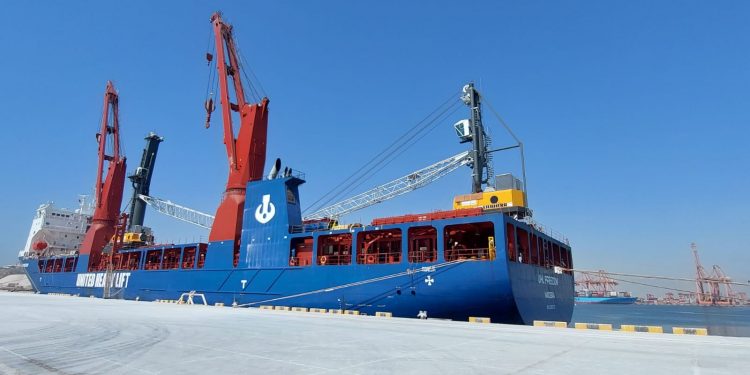The Port of Salalah has brought 16 new eco-efficient, rubber-tyred gantry (RTG) cranes from ZPMC into operation as well as three new mobile harbour cranes from Liebherr.
The addition of the new equipment comes as the port plans to expand operations, enhance container and general cargo handling and reduce the terminal’s environmental impact.
Mark Hardiman, CEO of the Port of Salalah, said: “Innovation and improvement are at the heart of our port-centric solutions.
“Our investment in the latest RTGs and mobile harbour cranes demonstrates our long-term commitment to optimise operational efficiencies and cargo handling services while accommodating existing and new trade.”
The contract with ZPMC and Liebherr is a part of a wider investment in expanding the port’s future capacity to ensure the terminal is equipped with the latest technology and equipment to support customers.
It is also meant to align with Oman’s 2040 Vision, which aims to elevate infrastructure as a key economic instrument to further grow the transportation and logistics sector.
Reducing fuel burn by 20%, the new RTGs are step in the terminal’s long-term plan to have zero-carbon emissions.
The units are fitted with the latest Siemens technology and are capable of lifting 41 tonnes, with six wide stacking plus truck lanes.
They can be fully monitored remotely and are integrated with the asset digitisation system currently being installed in the terminal to monitor production and efficiency. In addition, they have laser anti-collision systems to provide protection to machinery and pedestrians.
Hardiman added: “The new equipment will help us to continue expanding our capabilities, capacity, efficiencies and support increased demand.”
The Port of Salalah Container Terminal has an annual capacity of 5m teu, utilising a 2.4 km container berth quay and seven berths of up to 18 m draft.
APMT holds a 30% stake in the port-operating company Salalah Port Services. Other shareholders include the government (20%), government pension funds (23%), and others (27%). The 30-year concession agreement runs until 2028.






